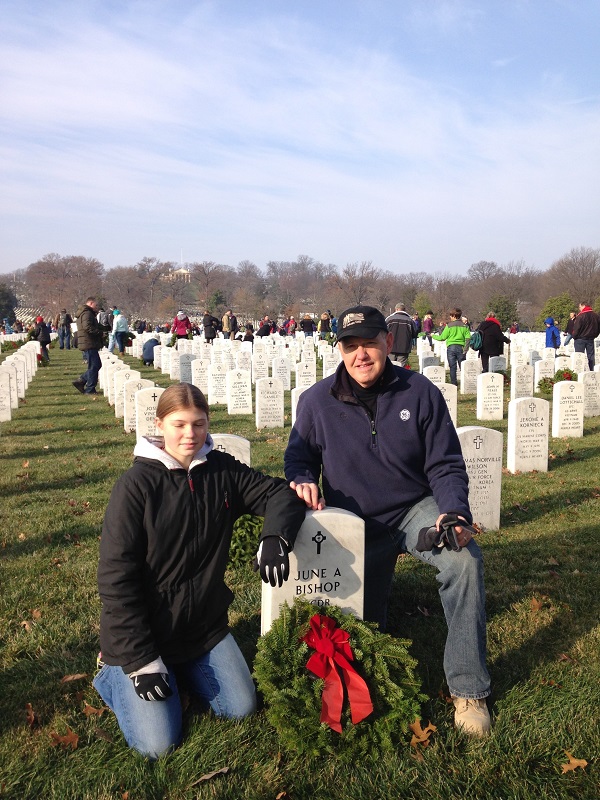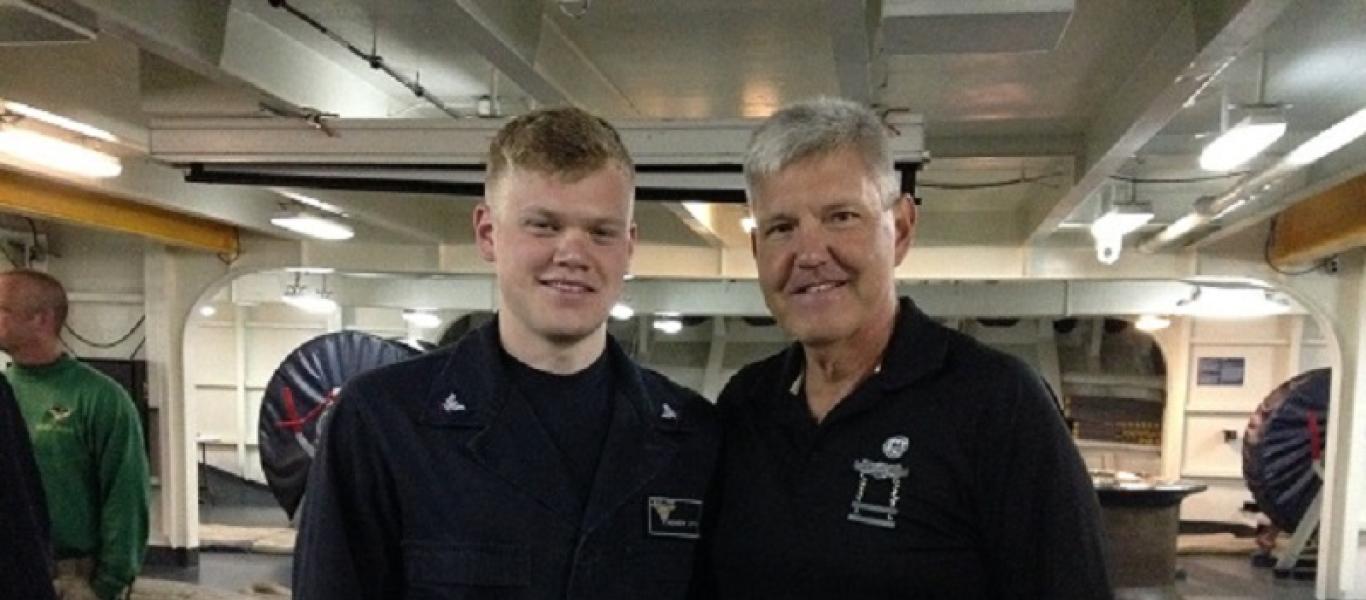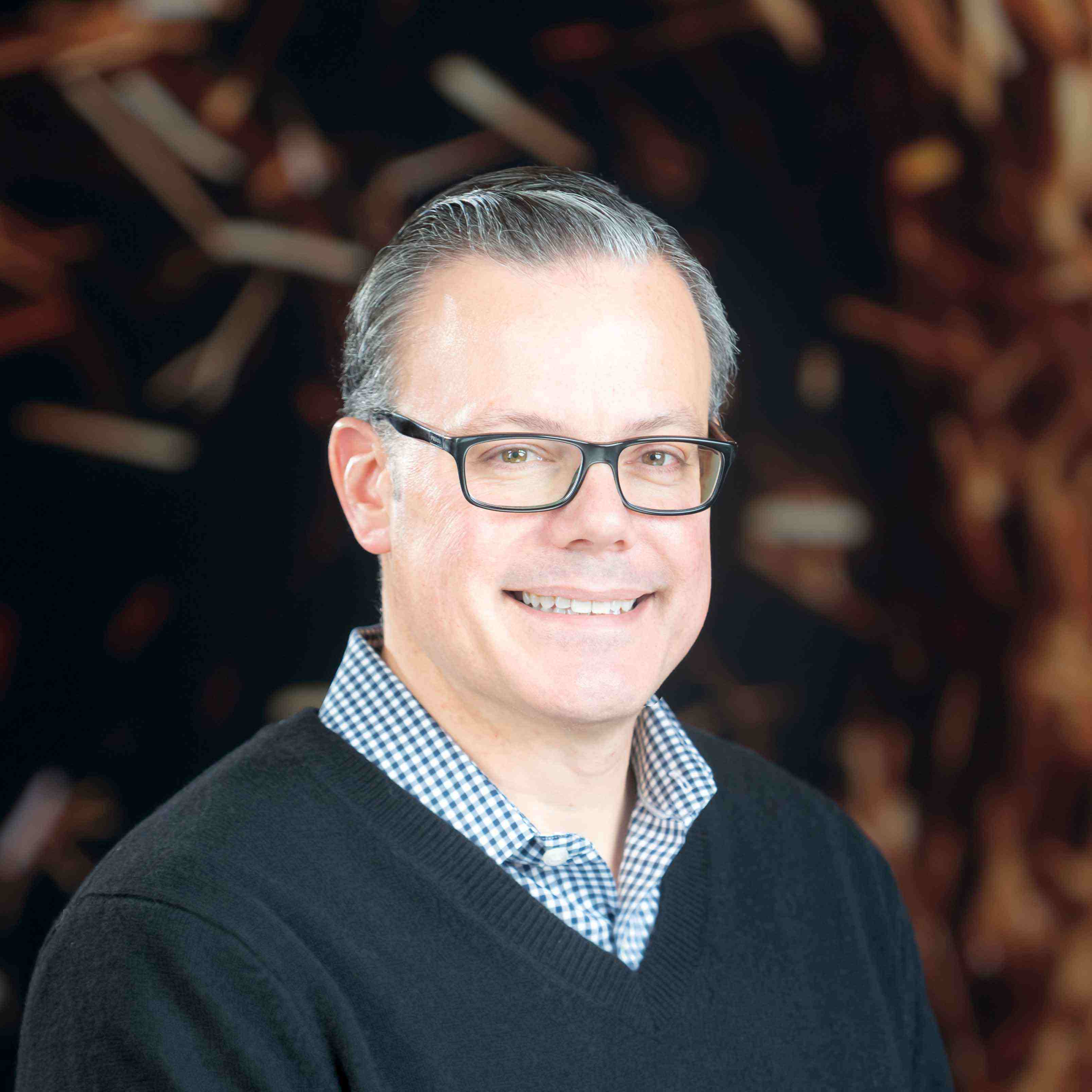At GE Research, we are lucky to have dedicated military veterans and servicemembers on our team. This month, we have the honor of highlighting their service and commitment. We spoke to Chip Cotton, an account executive in government relations for energy programs at GE Research, who shares how his military service in the US Navy helped to shape his 13-year career at GE.
Q: What was your position and where did you serve in the US military?
A: I retired as a captain after more than 23 years of Naval service. I was a Supply Corps officer responsible for logistical operations. I served sea tours on the USS HOUSTON (SSN 713) and USS KEARSARGE. On shore duty, I worked at the Defense Accounting and Finance Center in Cleveland, Ohio, earned a MS in Operations Research at the Naval Postgraduate School in Monterey, California, worked for the Military Traffic Management Command in Falls Church, VA, the Navy Personnel Command in Millington, TN, and was the Executive Officer at the Fleet Industrial Supply Center in Jacksonville, FL. Finally, I served as the lead readiness evaluation officer on the Chief of Naval Operations (CNO) staff where I also stood up Navy’s Task Force on Energy. In 2006, while on the CNO staff, I served on a special assignment providing logistical support to all the Special Forces in the Middle East based in Doha, Qatar for nearly a year, including stints in Iraq, Afghanistan, Kuwait, Bahrain, Jordan, Kenya, and Lebanon.
Q: How has your service helped shape your career?
A: I would attribute much of who I am today on the job to my military service. Most of the lessons learned could be categorized as leadership lessons, but I have also learned to look at challenges differently… from different perspectives and with constant evaluation. My time in the military taught me how to adapt to what you are experiencing rather than blindly adhering to what you planned for. I learned that personal responsibility is paramount and that guarding your do-say ratio is imperative. I have found that my time spent in the military helped with integrity and commitment, including seeing a task through to completion.
Q: Could you please share a valuable experience or lesson from your time in the military that has contributed to the development of your career here at GE?
A: On my submarine tour I ended up with a commanding officer that was never satisfied with anyone’s effort or results. He ended up trying to do everyone’s job and demeaning them versus coaching them on what he wanted to see improved. Before too long, much of the crew gave up trying to please the new commanding officer and stood by as our unit failed when he was unable to manage everyone’s responsibilities. We sunk a tugboat killing three civilians, had an avoidable flooding casualty (we were less than six seconds away from being unable to recover the boat), and ruined an expensive piece of test equipment. It was a very bad six months. These experiences have taught me to be the expert in what you do, be quite when others are doing what they should, and don’t feel like you must speak up to prove your worth. Don’t be afraid to manage your manager when necessary. If they are taking a wrong turn, it is your responsibility to tell them so in an appropriate fashion.
Q: How would you advise your fellow veterans that are in the process of transitioning to the civilian workforce?
A: The first thing is to know yourself, your strengths/weaknesses, what you enjoy and dislike about a job, and what you are willing to do when considering your personal and family situation. Then, network, network, and then network some more. Each person you speak with will give you a nugget of advice that you can shape into your story and plan. What’s better, they are always generous in helping you connect with the right people.
Q: Have you been involved with the GE Veterans Network? If so, what was this experience like and why are Employee Resource Groups like the GEVN so important?
A: I had the great honor and privilege of being selected to serve as one of the earliest national co-leaders of the Veterans Network when it was established in 2010. I was blessed to have the opportunity to learn from company executive sponsors like David Joyce and Beth Comstock. Even more importantly, I worked with a tremendous team from across the company that came together to grow the original 13 units to more than 30 active units in four years. We developed targeted missions to support GE and the veteran community by hiring top quality veteran talent, developing the talent we brought into the company, and supporting veteran populations through community outreach in the areas where GE does business. I have also used my experience here at GE to help Walmart and Exxon establish Employee Resource Groups (ERGs) for veterans. To me, diversity comes in many flavors, but my first principles of diversity will always be that of thought and perspective. ERGs, especially the Veterans Network where you may represent several groups, are critical to both preventing the real dangers of group think, and at the same time, expanding everyone’s professional and personal growth through the sharing of diverse perspectives and experiences.

We're here to solve your toughest problems.






